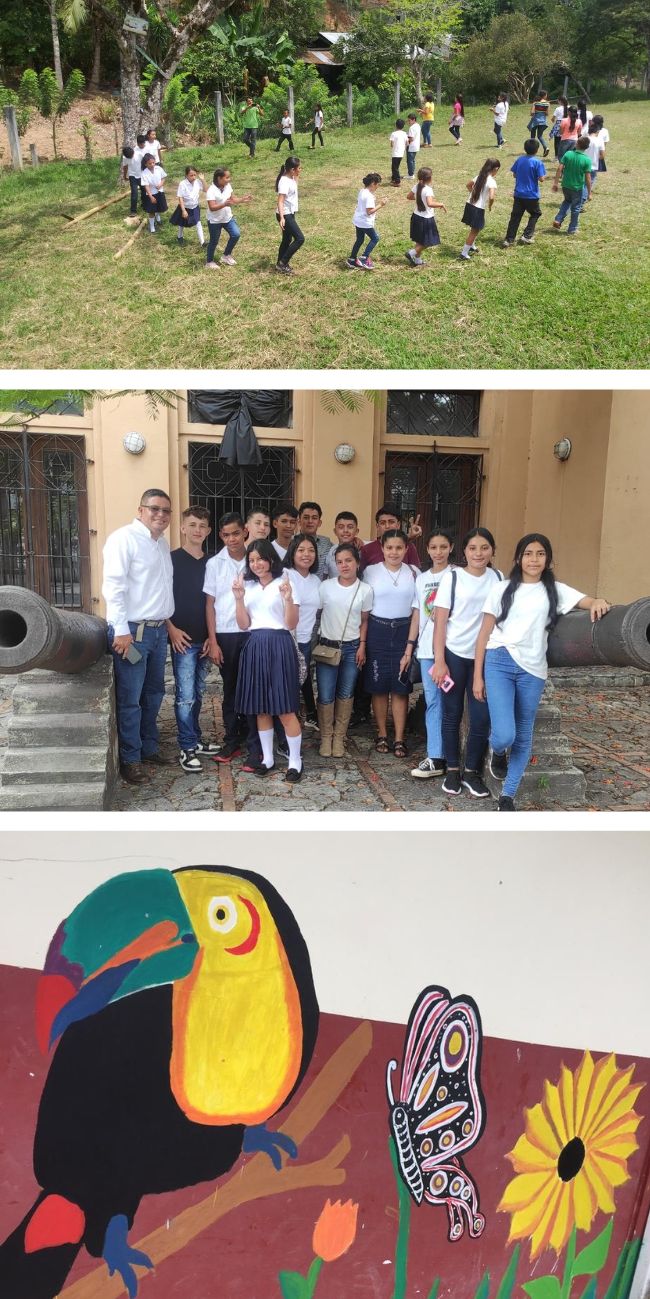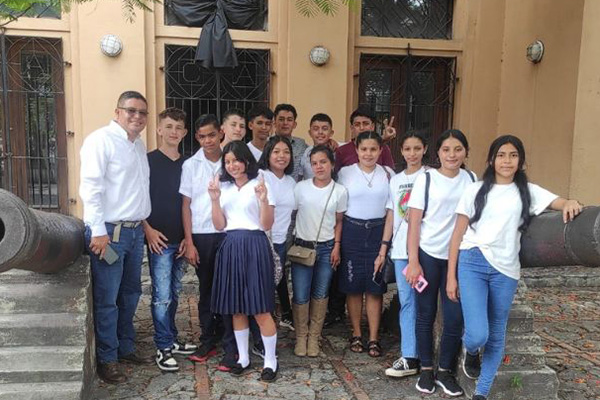
Top: children partake in PREVENIR activities, Middle: Ronny (far left) and his students, Bottom: artwork in Ronny’s school
When Rony Rolando Herrera was a young boy, he became a child at risk after he was abandoned by his father. Rony’s mother gave everything she had to raise Rony and his three brothers on her own; a task that was only made more difficult by the impoverished circumstances the family lived in. Thankfully, Rony’s support did not end with his mother. Through a nonprofit, Rony was enrolled in a child protection program that redetermined his life path. Now, Rony is dedicated to doing the same for the children in his school.
Rony is a science teacher and director of a primary school in San Jose del Cacao, Honduras. San Jose del Cacao is a rural community where hardship, tradition and poverty prevent education from being a priority. “The customs of these communities are from past civilizations and focus on working the land, not developing psychologically or intellectually,” Rony explained.
The barriers to education are most detrimental to the most vulnerable members of the community, including young girls. As a teacher, it was not uncommon for Rony to see his female students, as young as 13 years old, drop out of school after entering relationships with older men who abused and manipulated them. “These girls are in their teenage years and they are not empowered to know their rights or to continue with their education. They don’t know that they can change the failed system in their communities that believe women’s only purpose is to reproduce, do laundry and cook,” Rony said.
Through the Alliance for the Protection of Children, of which CWS is a member, Rony is dedicated to protecting his most vulnerable students. By joining the program, PREVENIR*, run by the Alliance, students at Rony’s school are given the opportunity to receive a more holistic education that aims to reduce the risks they may experience outside of the classroom. Rony elaborates that, “the educational process must be comprehensive. In addition to learning about things like science or biology, children need to know their rights. They need to know, for example, their right to a home, a family, an education and their right to stay in school.”
The program accomplishes this through lessons on children’s rights, personal hygiene, artistic expression, spiritual development, cultural understanding and basic life skills such as how to use public transportation. Children are also granted access to psychosocial support and additional resources.
Rony calls himself a “dreamer” and told us his hope is that his students will no longer experience abuse, that they will be able to see alternative paths to safety and stability and that they won’t ever feel isolated or rejected. He added that he already sees a change and that others have noticed it too. “It’s gratifying when people tell me our students are so well-educated because they weren’t always like that. You can see now how they have changed.”.
Behind Rony’s motivation lies a shared understanding of what it is like to be a child in need who is cared for and given a chance at a safe and stable life. “I am a product of this kind of help,” he said, acknowledging all those who make programs like this one possible. Rony now carries the love he received from both his mother and the humanitarian workers who supported him, to the students he serves every day. He stated, “This type of support changes lives,” and added that even if out of 140 students, only one is impacted, he knows this impact will carry over to future generations, just as it did for him.
*The PREVENIR project is implemented by various faith-based organizations that are members of the Alliance for the Protection of Children, in Mexico, Honduras, Guatemala, and El Salvador. The Alliance has implementing partners in each of these countries. In Honduras, one of these partners is SPASS Honduras (Passionist Social Services).
You can learn more about the work CWS does in Latin America by clicking here.

